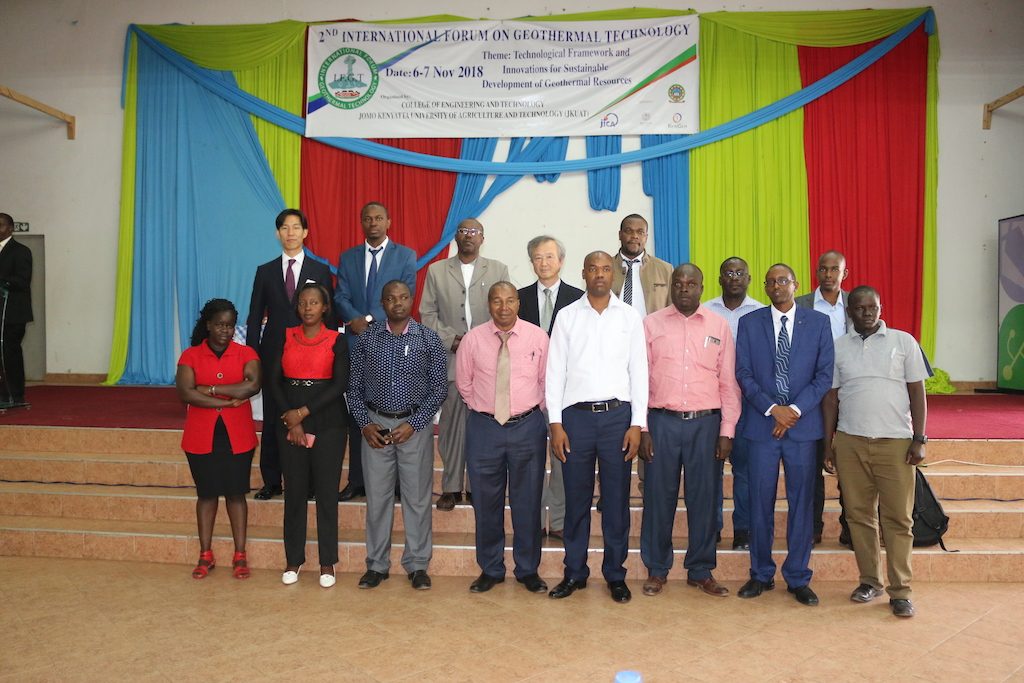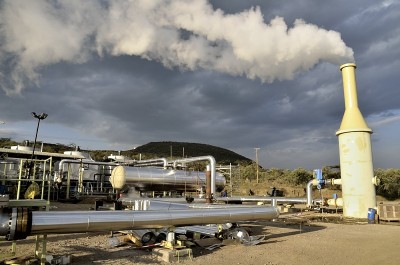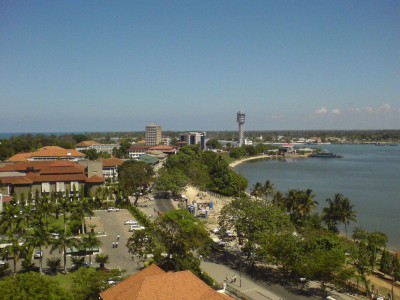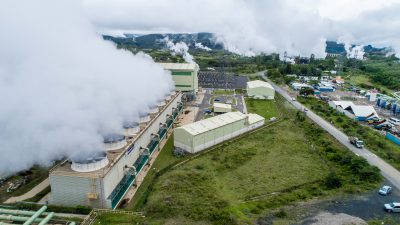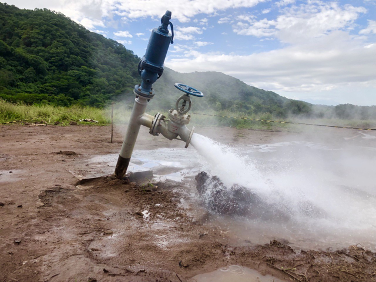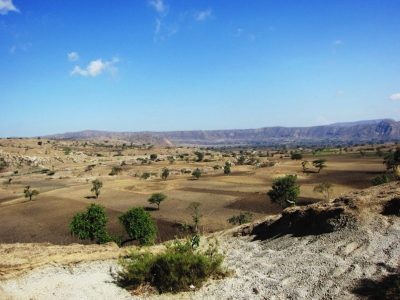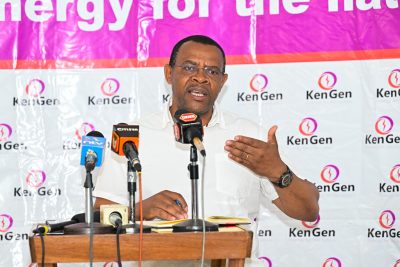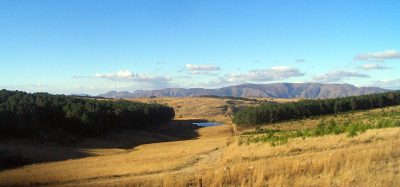Kenya to enhance and diversify utilisation of its geothermal resources
Kenya's government plans to enhance the utilization of geothermal resources for electricity generation and diversify to other innovative direct uses such as recreational, agricultural and industrial applications.
Kenya intends to enhance the utilization of geothermal resources for electricity generation and diversify to other innovative direct uses such as recreational, agricultural and industrial applications, among others, as reported in conjunction with a two-day International Forum on Geothermal Technology at Jomo Kenyatta University of Agriculture and Technology (JKUAT), Tuesday, November 6, 2018.
In the opening remarks to participants, the Principal Secretary, Ministry of Energy, Dr. Eng. Joseph Njoroge, revealed the plans for diversification in the utilisation of Kenya’s geothermal resources.
Eng. Joseph Njoroge, who was represented by the Ministry’s Chief Geologist, Mr. Chrispin Lupe, further observed that this year’s conference theme, “Technological Framework and Innovations for Sustainable Development of Geothermal Resources,” was relevant to the current status of the geothermal development in the rift region, “as the country intends to enhance the utilization of geothermal resources for electricity generation and diversity to other innovative direct uses such as recreational, agricultural and industrial applications among others.”
Given that the forum’s objective is “to structure target research areas and frameworks for future collaboration,” the Chief Guest was hopeful, workable cooperation areas and frameworks will be arrived at to enable the region cope with emerging issues pertaining to sustainability in geothermal development.
“This will require constant human interactions and interventions in areas such as capacity building, reservoir engineering to improve success rates in drilling programmes, efficient power generation technology, optimizing fluid re-injection and recharge and minimizing loss through evaporation to ensure sustainable exploitation of geothermal resources,” said Eng. Njoroge.
Success in the sphere of power generation and direct use of application of geothermal energy will require appropriate policy and regulatory framework, scientific/technological research linked to industry requirements and above all, adequate skilled human capital. Jomo Kenyatta University of Agriculture and Technology supported by JICA and Kyushu University is already setting the pace for continuous training at university level,” the PS, stated.
The Ministry, he reiterated, was focused on continued cooperation and development in the geothermal sector through technological advancement and home grown innovation as key driver for sustainable development of geothermal resources in Kenya and Africa as a whole.
The Vice Chancellor, Prof Victoria Ngumi noted that one of the key areas of research for JKUAT is renewable energy, a realization borne of the fact that “energy is the key enabler for all the pillars of the Kenya Government’s Big 4 Agenda.”
The Vice Chancellor who was represented by the Deputy Vice Chancellor in charge of Administration, Prof. Eng. Bernard Ikua, further said, “JKUAT is committed to carrying out extensive research on geothermal energy in Kenya, including assessment of the potential and developing innovative technologies for optimized the exploitation of the resource.”
She said, “the university had, in collaboration with Kyushu University (Japan), KenGen and with the support of JICA, organized the international forum to facilitate the development of a common vision on research policy framework for the industry going forward,” and challenged researchers and industry experts to “find solutions to issues such as Silica and calcite scaling, environmental impact and mitigation of geothermal activities and direct uses of geothermal energy.”
Prof. Ngumi urged stakeholders to address the shortfalls in self-sustaining energy supply. Kenya has the potential to generate more than 10,000 megawatts of geothermal energy but currently generates only 2,300 megawatts, which is less than 25% of the country’s potential.
Senior Deputy Director, (Team 2) Energy and Mining Group, Japan International Cooperation Agency (JICA), Mr. Eiji Wakamatsu, lauded JKUAT for hosting the second edition of the annual forum noting, geothermal energy can be one of the solutions to tackling two of the biggest challenges facing Africa and the world today — universal energy access and global warming.
“Global warming is an imminent threat calling for our immediate attention. We live in a world that is one degree warmer than before the industrial revolution. In Kenya and throughout Africa, severe floods and droughts are disrupting the lives of farmers and stable supply of energy,” he said.
Mr. Wakamatsu identified lack of access to electricity as an area calling for urgent attention from stakeholders. “Currently, one billion people around the world lack access to electricity. In sub-Saharan Africa, around 600 million people still live in the dark. According to the International Energy Agency (IEA), in 2030, more than 600 million people in sub-Saharan Africa will still have no access to electricity,” he observed.
Referring to two significant milestones agreed upon by the international community: the Sustainable Development Goals (SDGs) and the Paris Agreement, Mr. Wakamatsu said the two ambitious undertakings “underscored that business as usual will not get the world where it intends to be by 2030.
“If we fail to reach the Paris Agreement goals — which is to keep global warming to 2 degrees before the industrial revolution — it would mean that our children and grandchildren will have to live in a world with more violent storms, floods, droughts, massive displacement of people…” he stated.
On the other hand, failure to reach the seventh SDG — to ensure access to affordable, reliable, sustainable electricity for all, will mean a whole generation of people will lose out on the opportunity for quality education, health and to earn a livelihood, observed Mr. Wakamatsu in his key note address.
He underscored JICA’s readiness in partnership with the global community to achieve the dual goals of universal energy access and mitigating global warming using geothermal energy, through capitalizing on the current trend of decarbonizing power and to promote the use of geothermal energy, technological innovation and research, as well as strengthening the capacity of institutions and to invest in people. Forum participants were also addressed by among others; Mr. Cyrus Karingithe (KenGen Ltd.), Dr. Hiram Ndiritu, Principal of College of Engineering and Technology (COETEC), Deputy Vice Chancellor (Research, Production and Extension), Prof. Mary Abukutsa-Onyango, Prof. Ryuichi Itoi, Professor Emiritus, Kyushu University, Japan, Prof. Hiroshi Koaze, Chief Advisor, Africa –ai-Japan Project, and Mr. Seroni Anyona (CoETEC).
Source: Jomo Kenyatta University
